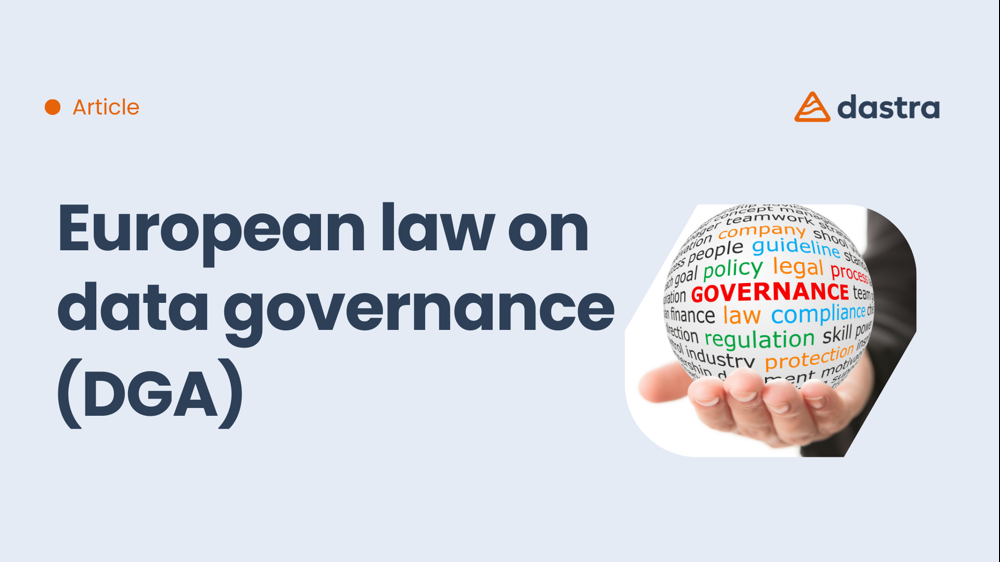The European legislation on data governance, the Data Governance Act (DGA), in perfect harmony with EU values and principles, brings significant benefits to EU citizens and businesses.
The Data Governance Act, a key pillar of the European data strategy, aims to enhance trust in data sharing, improve mechanisms for increasing data availability, and overcome technical barriers to data reuse.
This law also facilitates the creation and development of common European data spaces in strategic sectors. It involves both private and public actors in areas such as health, environment, energy, agriculture, mobility, finance, manufacturing industry, public administration, and skills.
The Data Governance Act came into effect on June 23, 2022, and has been applicable since September 2023.
Benefits of the DGA
The initiative aims to make more data accessible and facilitate its sharing across sectors and countries within the EU to maximize the potential of data for the benefit of European citizens and businesses.
For example:
Industries and Innovation: Effective management and optimized data sharing will allow industries to create innovative products and services, making various economic sectors more efficient and sustainable. This is also crucial for the development of AI systems.
Public Sector: With increased data availability, the public sector will be able to develop more effective policies, leading to transparent governance and improved public services.
Health: Data-driven innovation can transform the healthcare sector by improving personalized treatments, providing better care, and helping to address rare or chronic diseases. It can save approximately €120 billion per year in the EU healthcare sector and provide a faster and more effective response to health crises such as COVID-19.
Mobility: Mobility-related data can save over 27 million hours for public transport users and up to €20 billion per year in labor costs for motorists through real-time navigation.
Environment: Environmental data plays a key role in combating climate change, reducing CO2 emissions, and managing emergencies such as floods and forest fires.
Agriculture: Agricultural data can promote the development of precision agriculture, the creation of new agri-food products, and the emergence of new services in rural areas.
Public Administration: Administrative data will enable the provision of more reliable and higher-quality official statistics, thus supporting evidence-based decision-making.
How will the law work in practice?
The EU will promote the development of reliable data sharing systems through four major initiatives:
Facilitating the reuse of public sector data: Mechanisms will be put in place to enable the reuse of certain public sector data that cannot be made available as open data. For example, the reuse of health data could help advance research to find remedies for rare or chronic diseases.
Ensuring trust in data intermediaries: Measures will be taken to ensure that data intermediaries act as trusted organizers for data sharing or pooling in common European data spaces.
Facilitating the availability of data by citizens and businesses: Actions will be taken to encourage citizens and businesses to make their data available for the benefit of society.
Promoting data sharing beyond sectors and borders: Measures will be taken to facilitate data sharing, including enabling the use of data across different sectors and countries, as well as facilitating the search for appropriate data for specific purposes.
For more information on these measures, see the Explained Data Governance Act.
Impact of the DGA across the EU
The Data Governance Act will become a powerful driver of innovation and job creation, positioning the EU at the forefront of the second wave of data-driven innovation.
Society: The whole society will benefit from evidence-based policies and improved solutions to major societal challenges such as climate change and the COVID-19 pandemic.
Businesses: Businesses will benefit from reduced costs related to data acquisition, integration, and processing, as well as reduced entry barriers to markets. They will also experience shorter time-to-market for new products and services. This will foster the development of data-focused products and services for both small and large companies.
